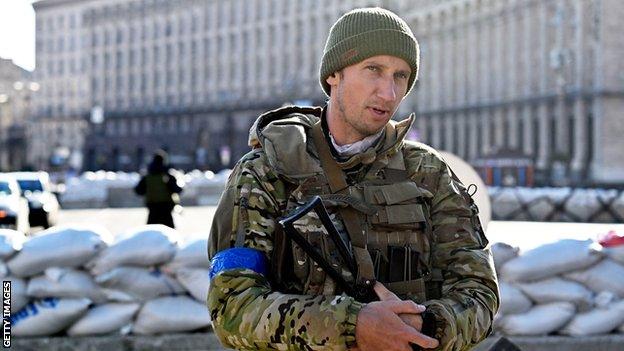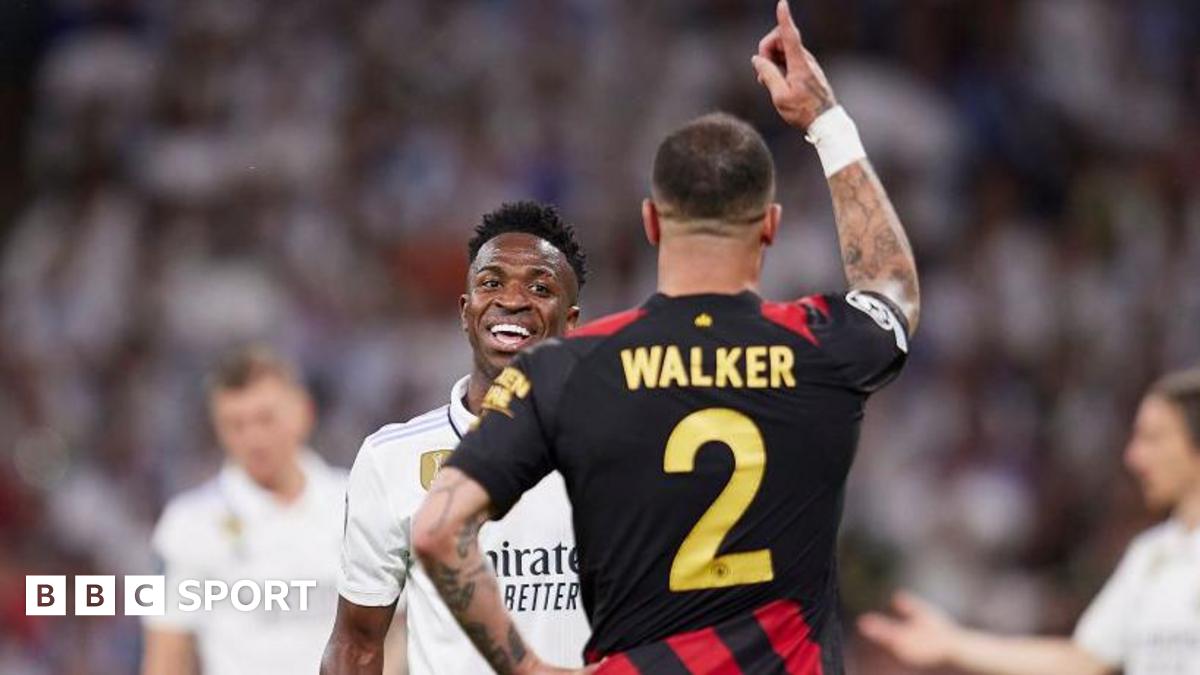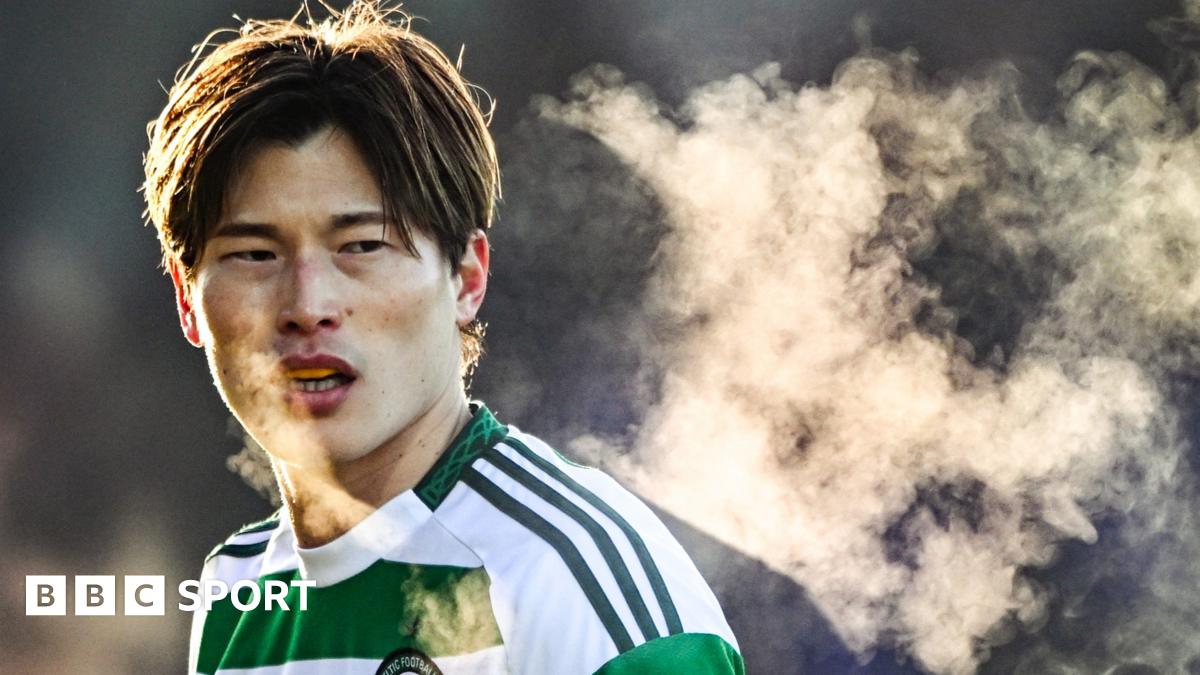ARTICLE AD BOX

 Stakhovsky took up arms one month after competing at the Australian Open
Stakhovsky took up arms one month after competing at the Australian OpenSergiy Stakhovsky was in Dubai on holiday when he got the phone call from his parents that he had been dreading.
They could hear explosions outside their house in the Ukrainian capital of Kyiv.
Russia had invaded.
Stakhovsky switched on the news and from that moment did not sleep or think for three days while he tried to process what was going on.
"I couldn't believe the pictures I was seeing," he tells the BBC. "I was trying to understand where my family were, what they were doing and how bad it was."
Just a month before, Stakhovsky had been playing in qualifying for the Australian Open. Defeat in Melbourne at the age of 36 led to him deciding to retire, ending a 19-year tennis career. In 2010 he had reached a world ranking of 31. In 2013 he had beaten Roger Federer at Wimbledon, ending the champion's run of 36 consecutive Grand Slam quarter-final appearances.
He knew what his next step would be.
He brought his family back to Budapest in Hungary, where they live. His wife asked what he was going to do.
"It was not the answer she wanted to hear and she got upset," Stakhovsky says.
"I played Davis Cup with pride for almost 17 years so I honestly don't see how I could be the privileged one to stay out of what's going on in my country.
"I actually sneaked out. The kids were reading and watching cartoons so I didn't bother them. The only one that saw me leaving was the youngest one and he asked me: 'Daddy where are you going?' I had the backpack on and so I said: 'I'll right back.'"
Stakhovsky did not turn back, heading first to Bratislava in Slovakia to pick up some gear including bulletproof vests and helmets before driving to the border with Ukraine. People were already starting to leave. He says he saw about 100 children standing in -8C temperatures.
He met up with a friend and they started the drive towards Lviv in the west of the country. There he stayed the night before heading to Kyiv to meet his brother and father. He had already organised for his mother to escape, along with his brother's wife and his brother's two daughters.
Stakhovsky was assigned to a military unit and the following Monday was stationed in Kyiv, trying to help as much as he could. In the capital, the enormity of the situation began to sink in. He had never had any military training.
"We wanted to use that time to the maximum because we didn't know when they were actually going to enter Kyiv or when they were going to start shelling harder, the same way as they were in Kharkiv," he says.
"We all basically slept with the Kalashnikov next to us. When there's a strike, we need to be ready."
All that time he was doing press interviews to try to bring the situation to people's attention. He also wanted to counter the Russian narrative about his country.
There were countless air raids and he was constantly going down to the shelter. It was an emotional time for him, but his trip to Bucha really showed the horrors of the war.
Bucha, a town outside Kyiv, was occupied by the Russians for a month at the beginning of the war. There is evidence of civilians being tortured, raped and murdered.
Images of the situation there have been shown around the globe but Stakhovsky says the world only saw a small reflection of what happened. Initially, he was not sure what he would do if he had to go into a gunfight. That changed after Bucha.
"The things they did and the way they did it are honestly inhuman," he says. "You cannot describe the hatred you feel towards the Russian army.
"The people who lived there, they didn't deserve it. They were not part of this war. They didn't want to participate. They were just civilians and they didn't have the chance to live.
"I would have no hesitation. If I saw a Russian soldier I know what I'm going to do."
Since the invasion, there has been a lot of discussion about how to react to Russian athletes and whether they should be banned from competing internationally. Tennis has taken a varied approach.
In the first weeks of the conflict, Russian tennis player Andrey Rublev wrote 'no war please' on a TV camera lens after winning a match in Dubai. World number two Daniil Medvedev spoke of "promoting peace". This was before a new Russian law that can lead to up to 15 years in jail for spreading anything the authorities consider to be 'fake news' about the military. Most Russian sportspeople have stayed silent since.
Last month, Wimbledon announced Russian athletes would be banned from competing in the tournament this summer. It was met with a mixed reception, but Stakhovsky fully supports the decision.
"In the first few weeks I honestly believed that the Russians, once they saw what the army was doing, when they're watching the destruction of cities, the bombing of cities such as Kharkiv and Kyiv that they would go out and protest," he says.
"But that didn't happen. Nobody came out. Few came to protest. There were no masses.
"So I stand behind it [Wimbledon's decision]."
Stakhovsky has been able to return to Budapest. During a brief visit home he fully explained to his children what he is doing in Ukraine, before leaving once more to continue his duties.
"I explained to my wife, we talked it through and we really did talk it through," he says. "I now feel better about myself because I came back.
"I left three kids and a wife I adore and I went to defend my country and I went to defend my family. There's nothing great about what I did.
"But the outcome could have been different. And it still can be."

- Find out what really happened in the 90's: Robert Carlyle takes us back to moments we missed that shaped the world today
- 'She may have a secret sister': Stacey Dooley visits a woman who wants to find out if her Dad fathered a child as a prisoner of war


 2 years ago
27
2 years ago
27








 English (US) ·
English (US) ·